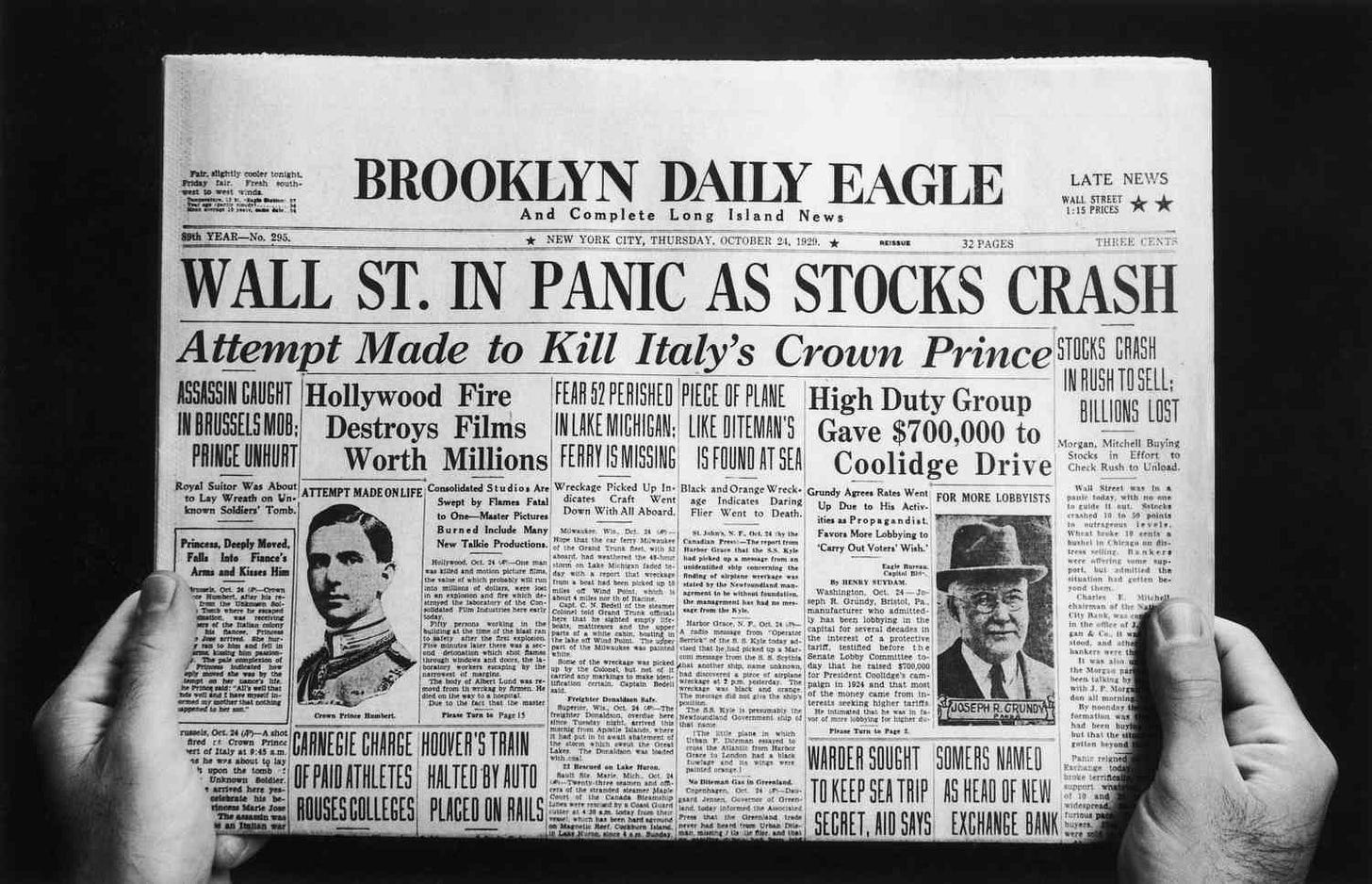DOOMSCROLLING THE NEXT FINANCIAL CRASH — TWO INDEXES TO WATCH
If financial crash prediction were a science, it wouldn’t work because then market participants would position themselves to counter the risk and the crash would be accelerated or delayed to a time before or after the predicted date.
But if I don’t have science, I can offer pseudoscience (economics) and journalism!
The most liquid and closely observed data series for financial doomscroller/analysts are the VIX Index, which are supposedly based on the “volatility” of S&P 500 stock baskets, and the MOVE Index, which allegedly tracks the “volatility” of US Treasury notes. In real life, the VIX and MOVE markets are profit centers for the “locals” or professional market makers notionally based in Chicago. The “locals” front run the asset manager/ customers, mostly with variance swaps. Allegedly. In the past.
If you have to ask what I mean by that description, you are an amateur who should never play in those markets. But you won’t listen to me. So the VIX and MOVE will continue to exist.
However, the reported data series on the VIX and the MOVE have some value in marking financial crashes. To summarize, based on past data, VIX is probably the first to show a marked deterioration in risk markets, but the MOVE action has a greater effect on monetary policy in a leveraged economy (such as that of the US today).
The BIS or Bank for International Settlements in Basel, Switzerland has a bigger research budget than I do. It put out a good paper on the old VIX/MOVE/Crash/Recession question, which was updated in January 2022.
In the BIS “Working Paper No 606” titled “ Market Volatility, Monetary Policy, and the Term Premium”, the authors conclude that “Both VIX and MOVE shocks resemble negative demand shocks, albeit of different intensity, to which the central bank responds by easing monetary policy.”
Hey, interesting, right? Can you trade it? Sure, if you are an utterly self aware genius with low transaction costs, serious money (but not too much) and no risk committee oversight. I don’t know anyone like that, but maybe I don’t get out enough.
The BIS authors show that in their construction “The positive shock to the VIX (higher stock market volatility) reduces the term premium (on the risk-free rate curve). “We interpret this effect as the result of investors shifting their portfolios away from riskier assets. The positive shocks to the VIX also has (monetary system) contractionary and disinflationary effects.”
“By contrast,” they continue, “a positive shock to the MOVE, which reflects heightened uncertainty about future changes in interest rates, raises the term premium…and also has a contractionary effect, although the negative effects on output and inflation are smaller” (BIS Working Paper 606, pages 6 to 7).
Great! A black box to make money…NOT!
Why not? Because if you have a few billion to play with, you will be distracted by other real-world issues and won’t get the execution and hedging perfect and on time. If you think you are that good, consider this: the seeming existence of this perfect arbitrage tells you that in real life it doesn’t happen.
You might, though, review the BIS No 606 model, implement it with algorithms, code and money and prove me wrong.
Go ahead, try!



A correction and hat tip to Pietro Ferri ---The BIS hq is in Basel, not Bern. Apologies, John Dizard
I actually profitably trade the VIX and have for years. But I supported an options based risk management package for years at an insanely global bank before ever trading a single VIX option or future too. I mean I actually got that ref to variance swaps and got it years ago when you used it in one of your anti-VIX articles.
I make it a habit to lurk around the forums of Reddit dedicated to options and stocks, and when some poor moke pops up with a bright idea about VIX I try to knock him down.
The last guy was very sophisticated. He had built a synthetic buy on VIX using the options that was quite something: balanced across all of the greeks, 100 delta per structure bought, it was a thing of great beauty. He was betting on a sustained rise of course, which of course didn't happen. I duly admired it but stated my longstanding opposition to ever going long this index outright. But it was after that six day stretch of down days, and I'm sure he was sure he had a sure thing.
The next week the market went up and VIX went down. I don't know how he did, he never came back to say, but hopefully he learned that betting on sustained rises in the VIX is as likely to pan out as buying a lottery ticket.